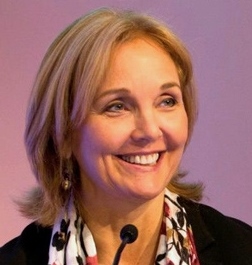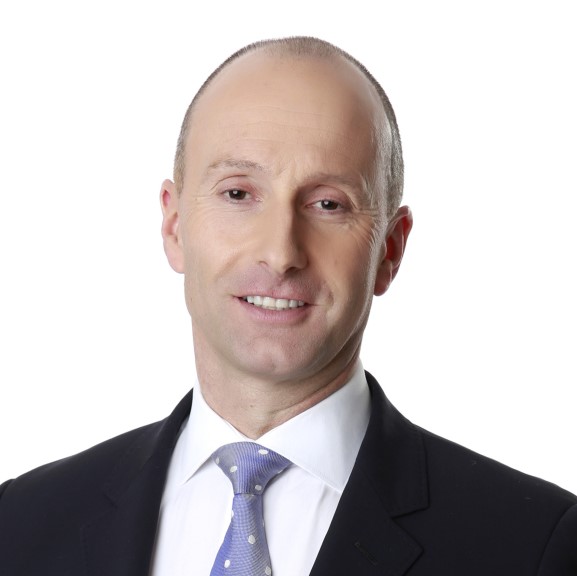Culture Under Threat
VIEW EVENT DETAILSPresented in conjunction with the 71st session of the UN General Assembly
NEW YORK, September 16, 2016 — Experts from a range of fields — including diplomacy, arts and antiquities collecting, and the military — discuss how terrorist organizations finance themselves through antiquities looting in the Middle East, Northern Africa, and Asia, and the effect this practice has on the international community. Speakers include Brigadier Gen. (Ret.) Russell Howard, a member of the Antiquities Coalition Advisory Council, Deborah Lehr, chairman and founder of the Antiquities Coalition, Emmanuel Roux, special representative of Interpol to the United Nations, Josette Sheeran, president and CEO of Asia Society, Mark Taplin, principal deputy assistant secretary at the U.S. Department of State's Bureau of Educational and Cultural Affairs, among others. The discussion was moderated by Jon Williams, the managing editor for international news at ABC News. (1 hr., 37 min.)
Throughout the Middle East and East Africa, the targeted destruction and organized plunder of ancient relics and sites have become weapons of war. Nowhere is the threat worse than under the Islamic State’s black flag — each day reaching farther beyond Iraq and Syria. Last September, Asia Society presented a special high-level forum on the fight against the destruction and looting of our common heritage, in partnership with the Antiquities Coalition and the Middle East Institute (MEI). The forum produced a special task force report — #CultureUnderThreat: Recommendations for the U.S. Government —which was published and presented earlier this year. Some of the report's recommendations have since been signed into law by President Obama.
Join us once again, as Asia Society, the Antiquities Coalition, and MEI, is convening renowned leaders in the global fight against terrorist financing from cultural racketeering, to review the breakthroughs and setbacks of the past year, as well as how the global community can best move forward today. The discussion will examine one issue of particular importance: how governments can better work with the private sector — including both the art market and technology industry — to fight cultural crimes.
Speakers

Brigadier General (Ret.) Russell Howard is a member of the Antiquities Coalition Advisory Council and senior fellow at the Joint Special Operations University in Tampa Florida. He was the founding director of The Jebsen Center for Counter-Terrorism Studies at The Fletcher School, Tufts University, and the founding director of the Combating Terrorism Center at West Point. He served as the commander of the 1st Specials Forces Group (Airborne), Fort Lewis, Washington, and commander of 3rd Battalion, 1st Special Warfare Training Group (Airborne) at Fort Bragg, North Carolina.
 Deborah Lehr is chairman and founder of the Antiquities Coalition, senior fellow at the Paulson Institute, and CEO and founding partner of Basilinna, a strategic consulting firm focused on China and the Middle East. She launched the Antiquities Coalition to work with governments across the Middle East to fight against antiquities trafficking and its use in funding terrorism and organized crime. Deborah serves as a member of the International Advisory Council of The National Geographic, on the Board of the Archaeological Institute of America, on the International Advisory Board of the London School of Economics, the Cox Business School Advisory Board at Southern Methodist University, and the Advisory Board of SAIS at Johns Hopkins University.
Deborah Lehr is chairman and founder of the Antiquities Coalition, senior fellow at the Paulson Institute, and CEO and founding partner of Basilinna, a strategic consulting firm focused on China and the Middle East. She launched the Antiquities Coalition to work with governments across the Middle East to fight against antiquities trafficking and its use in funding terrorism and organized crime. Deborah serves as a member of the International Advisory Council of The National Geographic, on the Board of the Archaeological Institute of America, on the International Advisory Board of the London School of Economics, the Cox Business School Advisory Board at Southern Methodist University, and the Advisory Board of SAIS at Johns Hopkins University.
 Emmanuel Roux is the Special Representative of INTERPOL to the United Nations. The INTERPOL UN Office focuses on areas such as Counter-Terrorism, Prevention of Illicit Wildlife and Firearms Trafficking and Drug Trafficking, through the promotion of INTERPOL’s police capabilities, included but not limited to databases and information sharing platforms. Prior to this position, he was the Head of the Syndicat des Commissaires de la Police Nationale, where he was responsible for high-level negotiations between the French National Police and political authorities.
Emmanuel Roux is the Special Representative of INTERPOL to the United Nations. The INTERPOL UN Office focuses on areas such as Counter-Terrorism, Prevention of Illicit Wildlife and Firearms Trafficking and Drug Trafficking, through the promotion of INTERPOL’s police capabilities, included but not limited to databases and information sharing platforms. Prior to this position, he was the Head of the Syndicat des Commissaires de la Police Nationale, where he was responsible for high-level negotiations between the French National Police and political authorities.
 Josette Sheeran is the seventh president and CEO of Asia Society. In the position, which she assumed in June 2013, she is responsible for leading and advancing the organization's work throughout the U.S. and Asia, and across its disciplines of arts and culture, policy and business, and education. She is former Vice Chairman of the World Economic Forum, and was the head of the United Nations World Food Programme. She has held senior positions in the U.S. government — as U.S. Under Secretary of State for Economic, Business, and Agricultural Affairs, and as Deputy U.S. Trade Representative, conducting negotiations across Asia.
Josette Sheeran is the seventh president and CEO of Asia Society. In the position, which she assumed in June 2013, she is responsible for leading and advancing the organization's work throughout the U.S. and Asia, and across its disciplines of arts and culture, policy and business, and education. She is former Vice Chairman of the World Economic Forum, and was the head of the United Nations World Food Programme. She has held senior positions in the U.S. government — as U.S. Under Secretary of State for Economic, Business, and Agricultural Affairs, and as Deputy U.S. Trade Representative, conducting negotiations across Asia.
 Mark Taplin is Principal Deputy Assistant Secretary at the U.S. Department of State's Bureau of Educational and Cultural Affairs (ECA) and holds the rank of Minister-Counselor. The Bureau advances U.S. foreign policy objectives through educational, professional, and cultural programs that promote mutual understanding between the people of the United States and people of other nations. Prior to assuming his current role, Mr. Taplin served as Deputy Assistant Secretary for Policy in ECA, overseeing the Bureau’s policy, evaluation, innovation and alumni efforts as well as its programs supporting the protection of cultural heritage.
Mark Taplin is Principal Deputy Assistant Secretary at the U.S. Department of State's Bureau of Educational and Cultural Affairs (ECA) and holds the rank of Minister-Counselor. The Bureau advances U.S. foreign policy objectives through educational, professional, and cultural programs that promote mutual understanding between the people of the United States and people of other nations. Prior to assuming his current role, Mr. Taplin served as Deputy Assistant Secretary for Policy in ECA, overseeing the Bureau’s policy, evaluation, innovation and alumni efforts as well as its programs supporting the protection of cultural heritage.
 Jon Williams (moderator) is managing editor for international news at ABC News. Prior to his current role, he spent seven years as world editor at the BBC, where he managed a staff of 200 people in 30 different countries, shaping the organization's news coverage and strategy. In 2007, the BBC's coverage of the Israel-Lebanon conflict won an international Emmy in the news category. Most recently, he oversaw the organization's reporting of the civil war in Syria, which was honored with the 2013 International Prize by the Royal Television Society. From 2000-2003, he served as the main broadcast producer on the BBC's "Six O'Clock News" — the U.K.'s most-watched news program — during 9/11 and the wars in Afghanistan and Iraq.
Jon Williams (moderator) is managing editor for international news at ABC News. Prior to his current role, he spent seven years as world editor at the BBC, where he managed a staff of 200 people in 30 different countries, shaping the organization's news coverage and strategy. In 2007, the BBC's coverage of the Israel-Lebanon conflict won an international Emmy in the news category. Most recently, he oversaw the organization's reporting of the civil war in Syria, which was honored with the 2013 International Prize by the Royal Television Society. From 2000-2003, he served as the main broadcast producer on the BBC's "Six O'Clock News" — the U.K.'s most-watched news program — during 9/11 and the wars in Afghanistan and Iraq.
This program presented in partnership with the Antiquities Coalition and the Middle East Institute.


